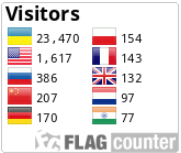PROFESSIONAL TRAINING OF FUTURE SPECIALISTS IN SOCIAL SPHERE IN THE CONDITIONS OF MULTICULTURAL SOCIETY
DOI:
https://doi.org/10.28925/2518-7635.2021.63Keywords:
professional training, multicultural society, university education, intercultural competence, professional activity, future specialistsAbstract
The article is devoted to the problem of professional training of future specialists in a multicultural society. The author analyzes researches and publications on this topic. The author notes that in the era of globalization, when the separate existence of different people and cultures becomes impossible, when there is a question of combining national values, there is a rethinking of goals and objectives of education and it becomes clear that the current content of education does not sufficiently fulfill the needs of society. New paradigms of education are discussed, and such concepts as multicultural education, culturological approach and intercultural competence are used. According to the National Doctrine of Education Development of Ukraine, the main goal of education is to form a high culture of interethnic relations of future specialist who is ready to intercultural interaction. The multinational society is an integral feature of the modern developing world. The growing awareness of the increasing social confrontation in the world between the growing level of the multinational society where people live and work, and their unpreparedness for these changes have led to the need for proper training. Today, it is important to establish positive relations between people in a multinational society. Professional training is defined as a system of organizational and pedagogical activities. It ensures the formation of a person's professional orientation, knowledge, skills, abilities and readiness for professional activity. Intercultural competence is the ability to recognize, respect and effectively use differences in the perception, thinking and behavior both in your own culture and foreign culture. The formation of intercultural competence in the process of training for professional activity in a multinational society presupposes readiness to interact with other systems of cultural orientation and is based on respect other cultural values.
Downloads
References
Bennett, M. (2001) A developmental approach to training intercultural sensitivity. In J. Martin (Guest Ed.), Special Issue on Intercultural Training. International J. of Intercultural Relations.Vol. 10, N 2. pp. 179-186. (in English)
Chubuk, R. (2014) Profesiyna pidhotovka sotsialʹnykh pratsivnykiv za metodom proektiv [Professional training of social workers by the method of projects] Actual problems of public administration, pedagogy and psychology. Vip. 1. pp. 181-185.(in Ukrainian).
Druzhinin, N. (2003) Slovar po proforiyentatsii i psikhologicheskoy podderzhke [Dictionary of career guidance and psychological support] Kemerovo Regional Center for Vocational Guidance of Youth and Psychological Support of the Population, Tomsk Center for Vocational Guidance. [Electronic resource] Access mode: http://esta2011.h16.ru/spravinfa/slovar/Ditionair.html (in Russian).
Karnyshev, (2014) Mizhkulturna kompetentnist i mizhetnichna tolerantnist studentiv [Intercultural competence and interethnic tolerance of students] pp. 62-79 (in Ukrainian).
Osypov, H. (2000) Sotsiolohichnyy entsyklopedychnyy slovnyk [Sociological encyclopedic dictionary] Moscow, P. 150 (in Ukrainian).
Ozhehov, S. (2007) Slovnyk rosiyskoyi movy: ok. 53000 sliv [Dictionary of the Russian language: approx. 53000 words] Publishing House LLC: World and Education Publishing House LLC, 640 p. (in Ukrainian).
Poznyak, O. (2002) Mihratsiyni protsesy v konteksti demohrafichnoho rozvytku Ukrayiny: suchasnyy stan i perspektyvni tendentsiyi [Migration processes in the context of demographic development of Ukraine: current status and future trends] Economic Journal XXI. pp. 34-43. (in Ukrainian).
Sadokhyn, A. (2007) Mizhkulturna kompetentnist : ponyattya, struktura, shlyakhy formuvannya [Intercultural competence: concept, structure, ways of formation] Journal of Sociology and Social Anthropology. Vol H. №1 pp. 125-139 (in Ukrainian).
Published
How to Cite
Issue
Section
License
Copyright (c) 2021 The Modern Higher Education Review

This work is licensed under a Creative Commons Attribution-NonCommercial 4.0 International License.













